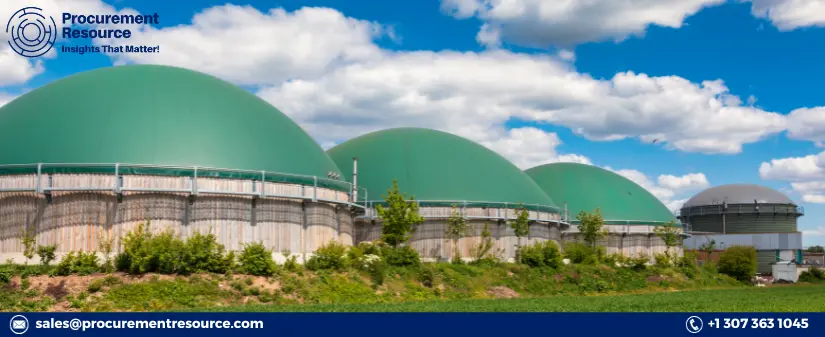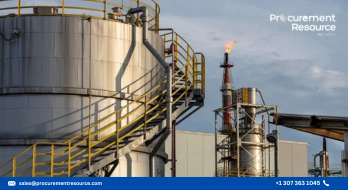The Collaborative Endeavour of JBS Australia and Energy 360 Aim to Substitute LNG Consumption with Renewable Biogas

JBS Australia is making significant strides in environmental sustainability with the commencement of a bioenergy system at its Scone beef processing plant in New South Wales. This innovative initiative, in collaboration with Energy360, is a pivotal move to substitute the consumption of liquefied natural gas (LNG) with renewable biogas, sourced from wastewater emissions. The endeavor is poised to curtail around 28,000 tonnes of carbon dioxide (CO2) emissions annually.
Request Access To The Latest Price Trends of LNG
The biogas production employs a meticulous approach, utilizing sealed pond covers to encase the wastewater emanating from the facility. This method facilitates the trapping and subsequent capture of biogas, preventing its release into the atmosphere. The eco-friendly project resonates with JBS Australia’s enduring commitment to innovative and responsible business practices, contributing to a reduction in carbon footprint and enhancement in operational efficiency, as highlighted by Sam McConnell, COO of JBS Australia’s Southern Division.
The Scone facility project, scheduled for completion by the end of November this year, is already in the initial stages with the installation of pond covers underway. The commencement of construction marks not only an environmental breakthrough but also an economic one. James Turner, Plant Manager at JBS Australia’s Scone facility, emphasized the significance of the project in generating additional local contract construction jobs and transforming biowaste into a valuable energy source. This transformation is particularly relevant in the backdrop of an unpredictable gas market, offering a sustainable alternative and accruing cost savings.
Biogas, the central component of this venture, brings multifarious applications to the table. It can be utilized in direct combustion to generate high-temperature heat or can be harnessed through cogeneration for the simultaneous production of heat and electricity. This versatility of biogas aligns seamlessly with JBS’s commitment to achieving Net Zero greenhouse gas (GHG) emissions by 2040. To realize this commitment, JBS has invested $11.1 million in the development of bioenergy systems across multiple facilities including Dinmore, Beef City (Toowoomba), and Scone.
Read More About Liquefied Natural Gas Production Cost Reports - Get Free Sample Copy in PDF
According to the article by Procurement Resource, JBS Australia has embarked on an ambitious environmental project by initiating the construction of a bioenergy system at its Scone beef processing unit in New South Wales. In collaboration with Energy360, the venture seeks to replace the plant's dependence on liquefied natural gas with renewable biogas derived from wastewater emissions, targeting a reduction of 28,000 tonnes of CO2 emissions annually.
Leveraging sealed pond covers, the system captures biogas from the facility's wastewater, emphasizing JBS's dedication to sustainable business practices. With completion expected by November, this project not only promotes environmental conservation but also economic growth, promising job creation and a sustainable energy alternative in the face of fluctuating gas markets. This initiative aligns with JBS's larger goal of achieving Net Zero GHG emissions by 2040, supported by an investment of $11.1 million across various sites.



